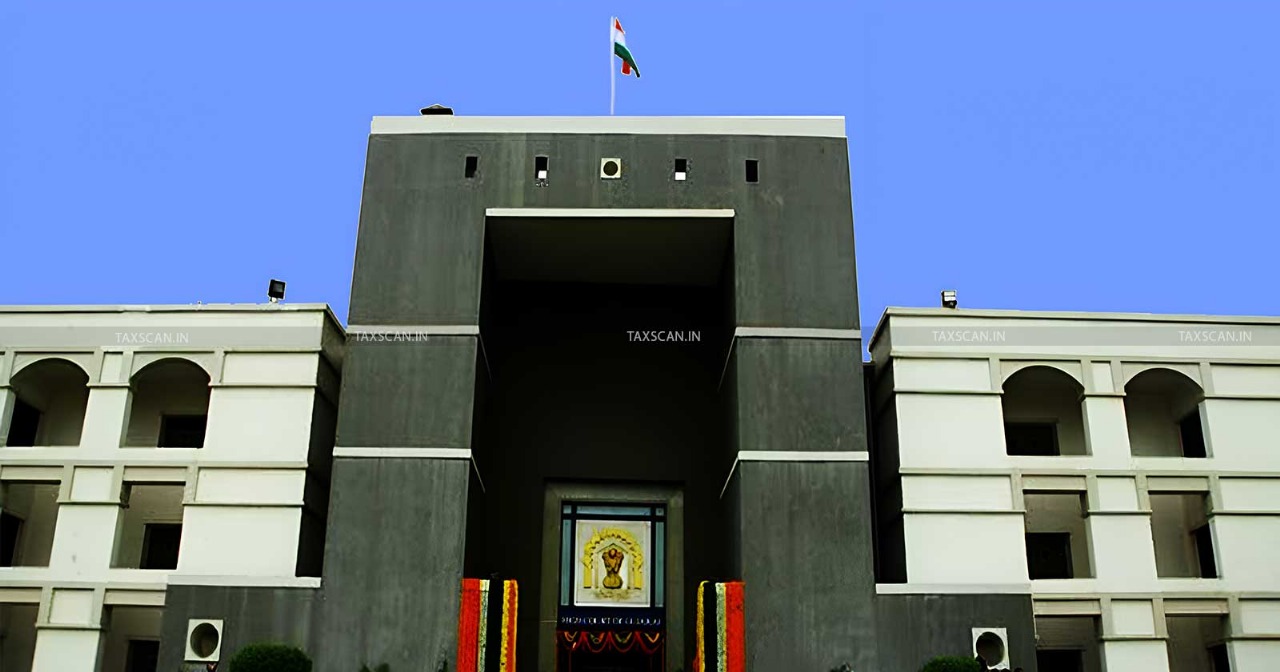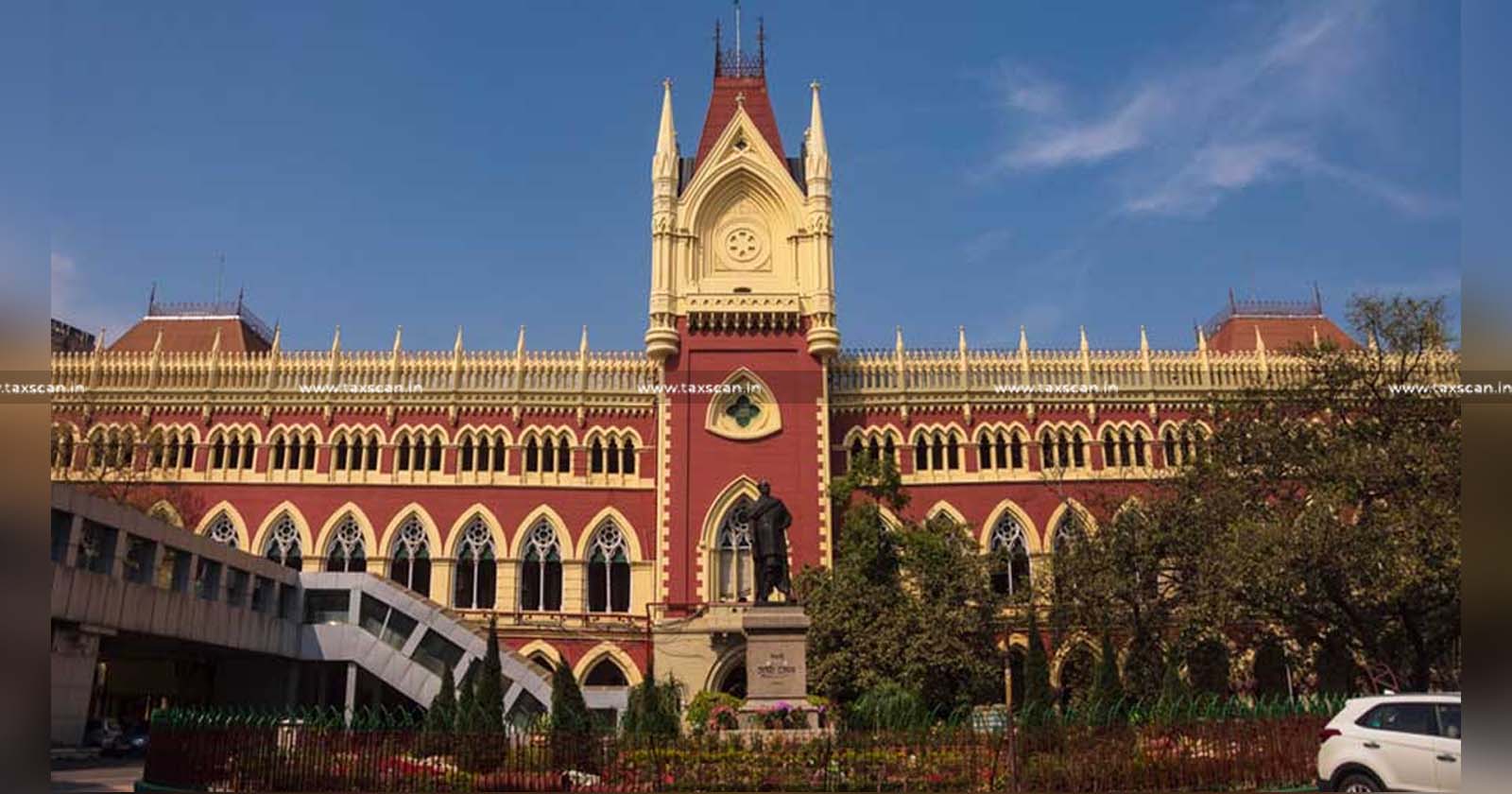Proper Officer Should follow Formulae u/r 42 and 43 to Compute Utilization of GST ITC and Reversal Thereof: Calcutta HC [Read Order]
The High Court noted that the appellate authority ought to have exercised its powers under Section 107(12) and called for the reconciliation statement before arriving at a final decision rather than dismissing it
![Proper Officer Should follow Formulae u/r 42 and 43 to Compute Utilization of GST ITC and Reversal Thereof: Calcutta HC [Read Order] Proper Officer Should follow Formulae u/r 42 and 43 to Compute Utilization of GST ITC and Reversal Thereof: Calcutta HC [Read Order]](https://images.taxscan.in/h-upload/2025/07/01/2057617-delhi-high-court-gst-itc-input-tax-credit-taxscan.webp)
In a recent order, the Calcutta High Court emphasized the importance of the assessing authorities to follow the formulae prescribed under Rules 42 and 43 of the CGST Rules for the computation and reversal of Input Tax Credit (ITC) under the Goods and Services Tax (GST) regime.
The guidelines were promulgated by the Calcutta High Court while adjudicating a writ appeal filed by Hemraj Rice Mill & Anr. against The Assistant Commissioner, CGST & CX, Bardhaman Division, Bardhaman & Ors.
 Also Read:Fake GST ITC Allegations: Rajasthan HC grants Bail to accused Considering Dept has not calculated tax liability [Read Order]
Also Read:Fake GST ITC Allegations: Rajasthan HC grants Bail to accused Considering Dept has not calculated tax liability [Read Order]
The petitioners had challenged an order passed by the appellate authority under Section 107 of the WBGST/CGST Act, dated 11th November 2024, and the resultant demand raised in Form GST APL-04 dated 12th November 2024, pertaining to the tax periods 2017-18 to 2018-19.
The authorities, after scrutinizing the returns filed by the petitioner in Form GSTR-3B, concluded that the petitioners had not reversed ITC in accordance with Section 17(2) of the Act read with Rules 42 and 43, resulting in a demand of ₹55,11,115. The adjudicating authority, however, was alleged to have determined this liability without referring to the statutory formulae laid down under the said Rules.
Stay Updated with the Latest Audit Report Formats & Audit Trials Requirements! Click here
Upon appeal, the appellate authority failed to recognize that the adjudicating authority failed to apply the steps and formulae as prescribed in Rules 42 and 43, but nevertheless dismissed the appeal solely on the ground that the petitioner did not furnish the required reconciliation statement for purchases and ITC availed during the relevant period.
The petitioner was represented before the High Court by Raharshi Chatterjee and Suman Sahani; the respondents were represented by Bhaskar Prosad Banerjee, Tapan Bhanja, Debasish Chowdhury and Prithu Dudharia.
 Also Read:Gujarat HC Quashes Entire Proceedings under GST Rule 96(10): A look back to Previous HC Rulings
Also Read:Gujarat HC Quashes Entire Proceedings under GST Rule 96(10): A look back to Previous HC Rulings
It was the contention of the petitioners that the determination and consequent demand for ITC reversal were vitiated by a failure to apply the mandatory formulae under the rules, and that the appellate authority, despite having noted the procedural lapse, denied them an opportunity to submit a reconciliation statement essential for proper adjudication.
The respondents, on the other hand, maintained that the petitioner had failed to supply necessary documents, justifying the order.
The Bench of Justice Raja Basu Chowdhury after considering the submissions and materials on record observed that the appellate authority itself had found that the original determination was made without applying the proper procedure for ITC computation and reversal as provided under Rule 42 for inputs and input services, and Rule 43 for capital goods.
The Court noted that the appellate authority, instead of dismissing the appeal, ought to have exercised its powers under Section 107(12) to call for the reconciliation statement from the petitioner before arriving at a final decision.
 Also Read:Calcutta HC dismisses Writ Petition Challenging Order passed u/s 148A(d) of Income Tax Act on limitation, citing Availability of Alternative Remedy [Read Order]
Also Read:Calcutta HC dismisses Writ Petition Challenging Order passed u/s 148A(d) of Income Tax Act on limitation, citing Availability of Alternative Remedy [Read Order]
In such circumstances, the Court concluded that the petitioner should be granted an opportunity to submit reconciliation statements for the relevant assessment years, and that a proper determination in accordance with law should be made only after affording a fair hearing.
Consequently, the High Court set aside the impugned orders of the adjudicating authority and that of the appellate authority as well as the demand made in Form GST DRC-07. The matter was remanded to the adjudicating authority to decide afresh after giving the petitioner a full opportunity to present their case.
Support our journalism by subscribing to Taxscan premium. Follow us on Telegram for quick updates


